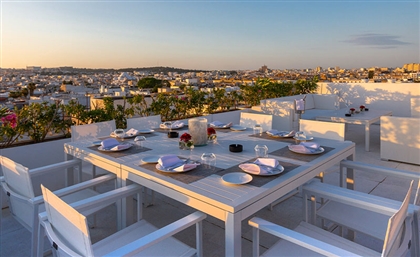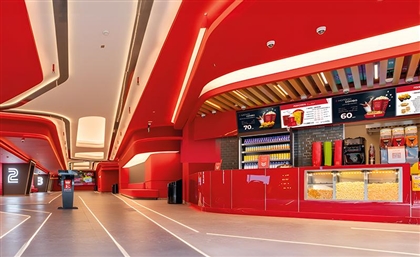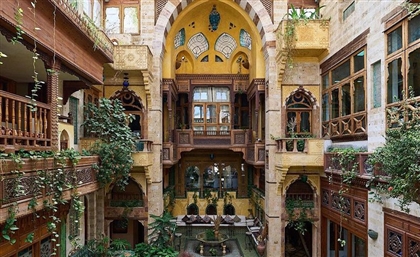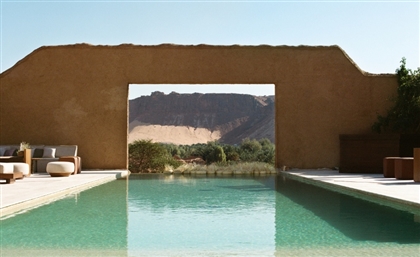This Boutique Hotel Is Breathing New Life into Tunis’s Ancient Medina
Comprising two beautifully restored traditional mansions, Dar Ben Gacem provides a means to connect with the Medina's community.
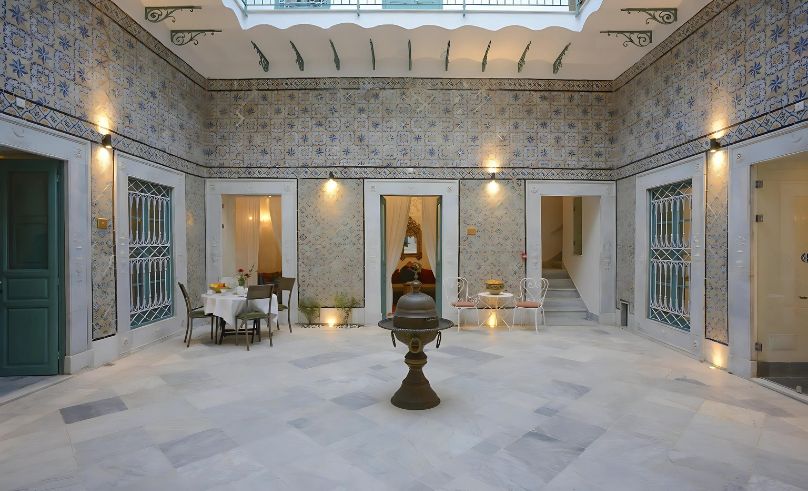
Founded by the Arabs following the conquest of the old Roman province of Ifriqiyya, the Medina of Tunis evolved over the centuries into a thriving, cosmopolitan trading center at the heart of the Mediterranean. Within its serpentine, whitewashed alleys lie mosques, synagogues, palaces, markets and hammams—all attesting to the city’s rich Islamic past and the diverse communities that have called it home.
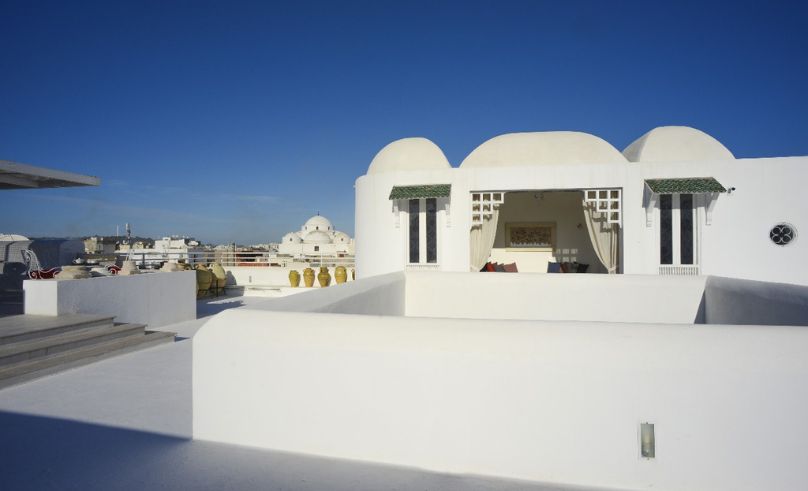
However, the Medina—which had for so long been the cultural, political and commercial hub of the region—fell into decline following the establishment of the French Protectorate in 1881 and the creation of the modern European city, the Ville Nouvelle. For Tunisia’s colonial authorities and Francophone elites seeking to create a modern European style state, the wide boulevards of the Ville Nouvelle came to embody all that was new, modern and good whilst the warren of the Medina came to symbolize all that was backward about the past.
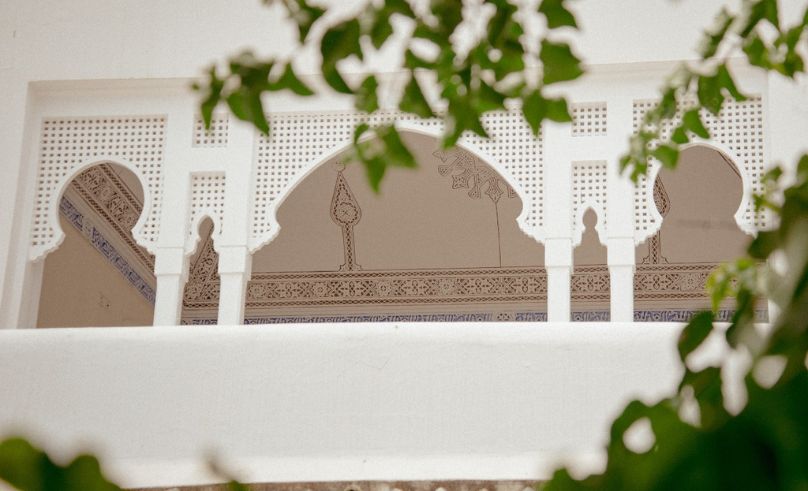
In the years that followed, the Medina’s grand mansions—once home to traders, Ottoman officials, and the great sheikhs of the Zaytouna Mosque—fell into disrepair. Meanwhile, the impact of globalization and influx of mass-produced goods led to the decline of the Medina's once-vibrant artisanal community, with shoemakers, silk weavers, and ceramicists closing workshops that had operated for generations.
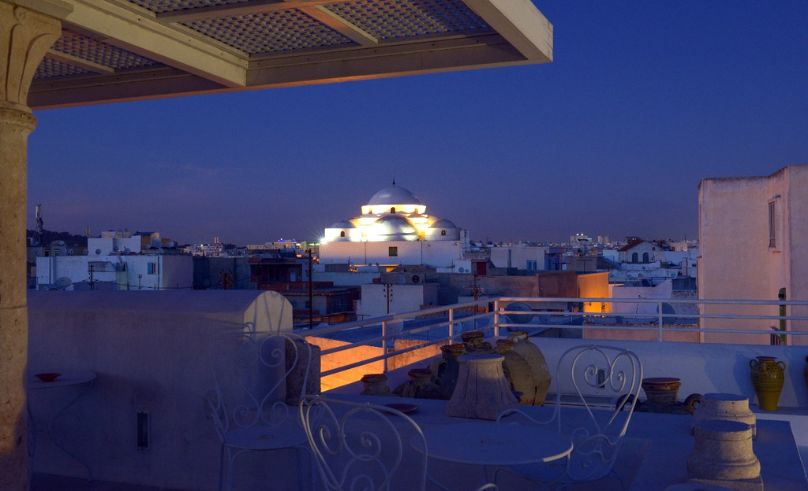
Yet, Tunisian social entrepreneur Leila Ben Gacem never saw this dichotomy between Tunis’s old and new cities. “For me, the most magical place in Tunis is Bab el Bahr, the main gate connecting the Medina with the Ville Nouvelle,” She shares with SceneTraveller. “As you step out of the Medina’s crowded shops and narrow alleys, you suddenly find yourself in a European city. Two cities with completely different cultures, sitting side by side in perfect harmony—literally two continents glued together by a little gate.”
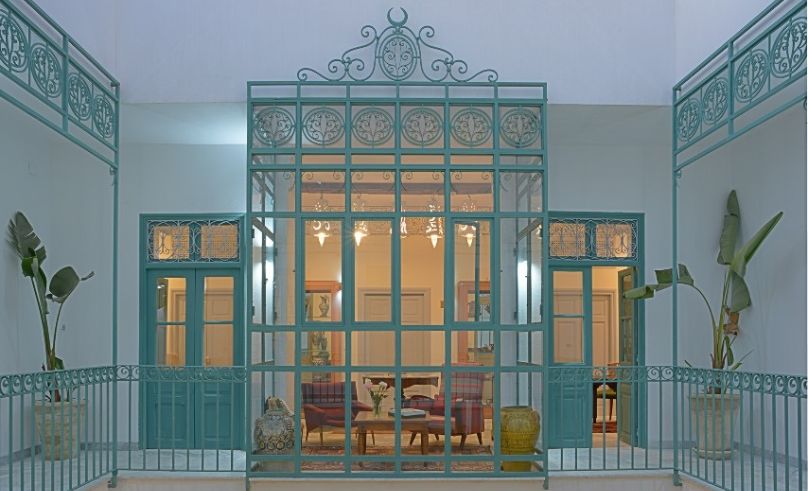
Seeing the potential in the Medina, Leila decided to leave her successful career as an engineer for a multinational corporation and pursue her passion for social entrepreneurship. First came Blue Fish, a social enterprise to promote Tunisian artisans, then in 2007 she embarked upon a new project—Dar ben Gacem, a boutique hotel in the heart of Medina.
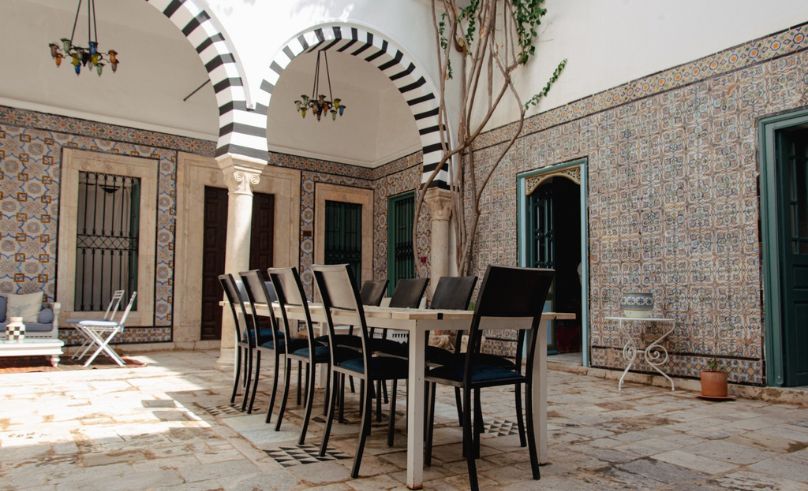
She settled on a crumbling seven-bedroom traditional dar on Shariah al Pasha, built in the 16th century and once home to a prosperous family of master perfumers. Like many houses in the Medina, the dar incorporated stones and columns from the ruins of Ancient Carthage. For Leila, the house’s blend of ancient and Islamic influences captures the city’s magic. “There are layers upon layers of civilization here. When you sit in the courtyard, you can forget time and imagine all the artisans that decorated the space, all the people that lived there—cooking, playing, singing, celebrating, mourning.”
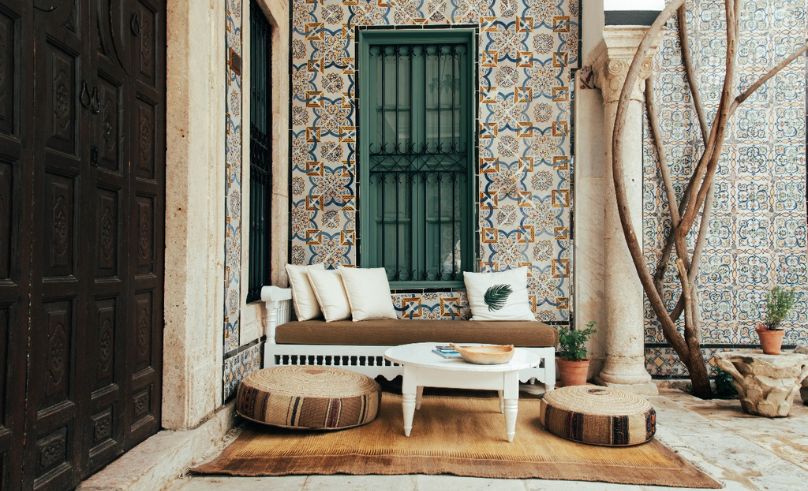
After three years of painstaking renovation working with a team of local artisans, navigating the intricacies of Tunisian bureaucracy, the dar was restored to its former grandeur, featuring seven uniquely decorated rooms that showcase Tunisia’s rich artisan traditions.
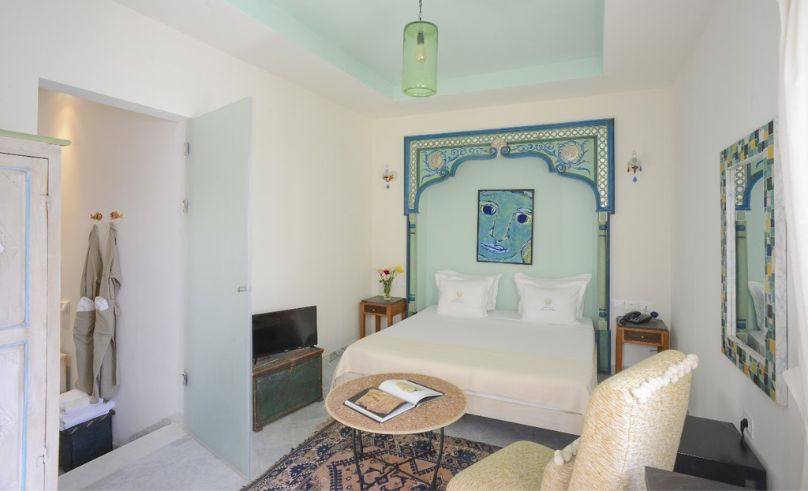
The ethos behind Dar Ben Gacem is simple. “I want people to have a 100% Tunisian experience,” Leila tells SceneTraveller. “I want them, once they leave the house, to see children going to school, men sitting in cafés, women hurrying home to cook for their families, to smell what the neighbors have cooked—to experience life, make friends, and interact with the local community.”
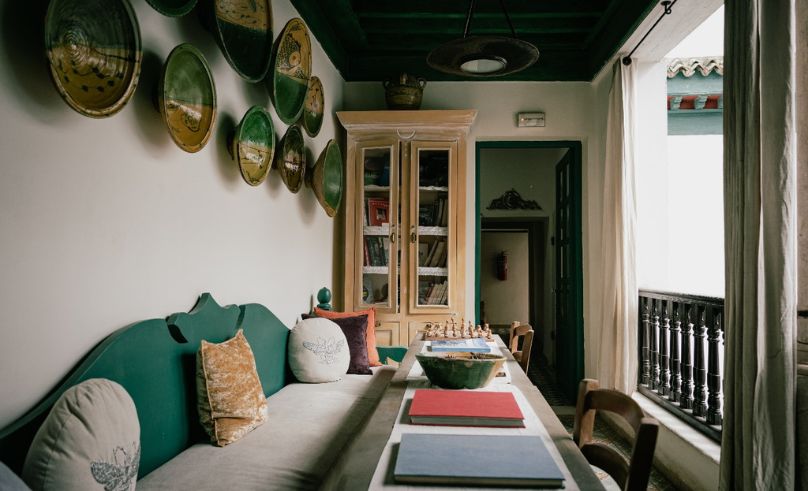
After a traditional Tunisian breakfast over a Turkish coffee in the dar’s traditional courtyards, guests may then spend the morning with a shoemaker, the afternoon with a calligrapher, and—after buying fresh vegetables and fish from the local souq—the evening cooking up a delicious feast with the hotel’s cook.
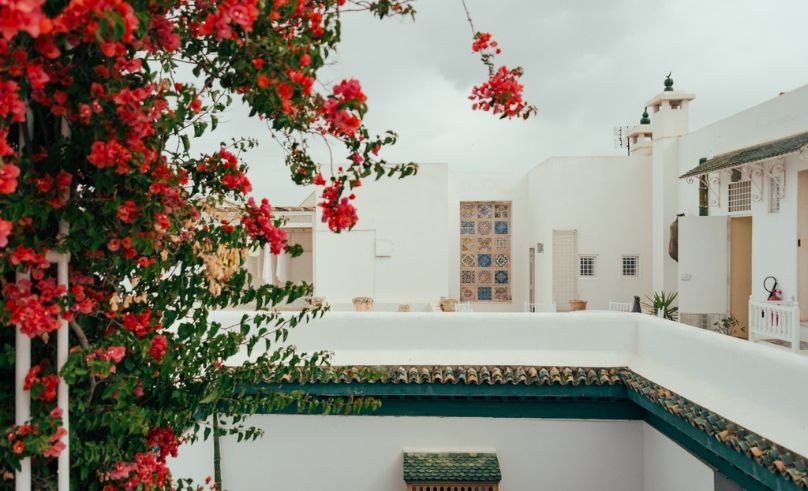
From the start, Dar Ben Gacem was as much a social initiative as it was a hotel. It has hosted an eclectic program of residencies aimed at enriching the local community. The dars have welcomed an American DJ teaching young people about DJing, a Tunisian-Jewish food historian recreating 17th-century Ottoman banquets, and a week-long residency for musicians from Mexico, Venezuela, Cuba, and Spain to collaborate with local artists. “They couldn’t communicate with each other,” Leila recalls with a laugh, “but music has no language, no borders, and they produced something magical.”
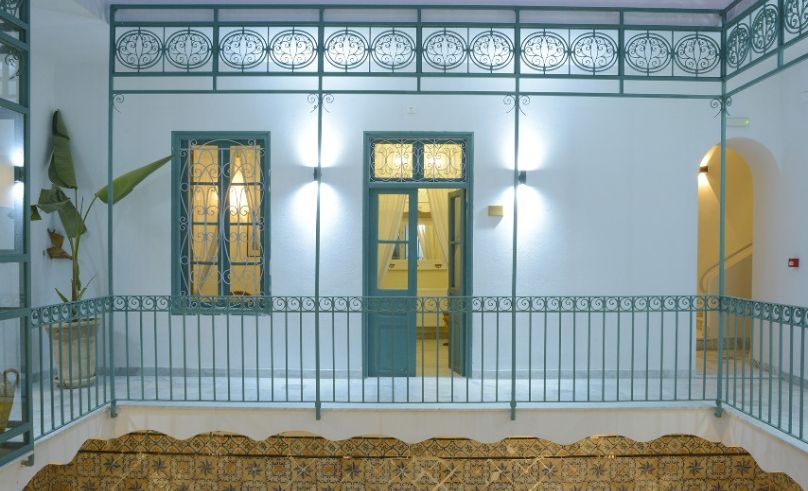
Today, the Medina—once a refuge for Jews and Muslims fleeing Europe after the fall of Andalusia and Sicily—is experiencing an exodus of its youth due to economic stagnation. Yet, projects like Dar Ben Gacem offer hope. “It may just be a drop in the ocean, but it’s something,” says Leila. “A very special moment for me was when one of our managers, a high school dropout, turned to me and said, ‘We once believed that leaving the Medina was the only path to a better life. But with Dar Ben Gacem, we could see that life could be better here.’”
- Previous Article Album Spotlight | The Synaptik - Al Taman
- Next Article Is House of Zizi the Next Best Thing to Your Mum’s Kitchen?








